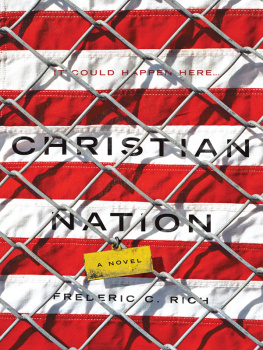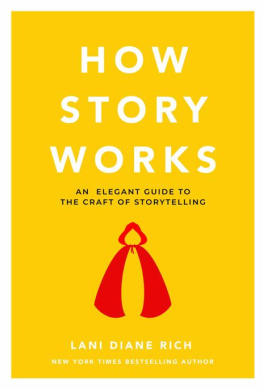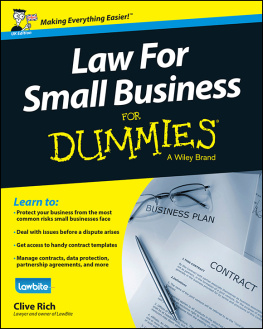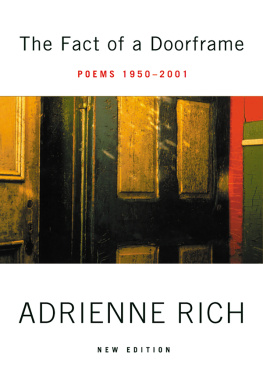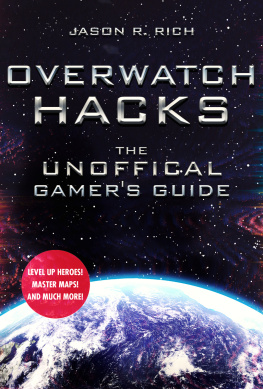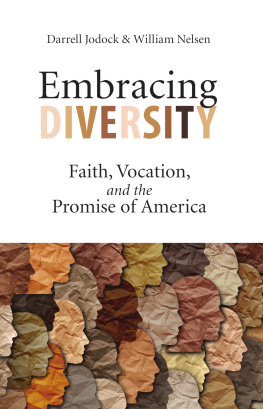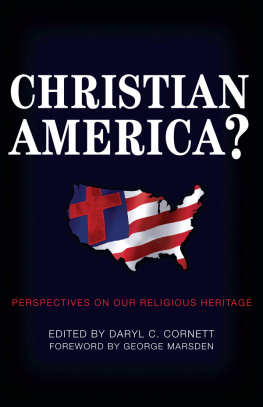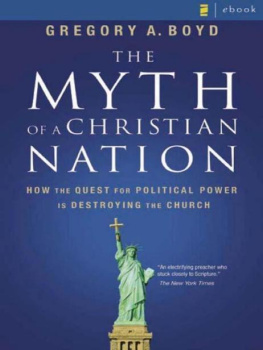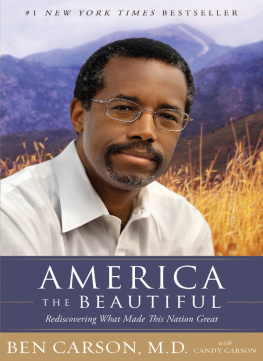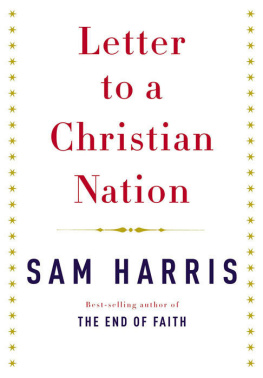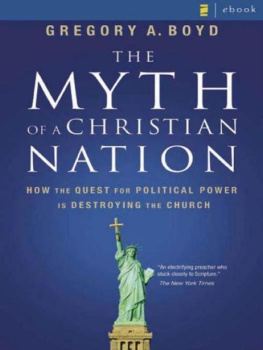
CHRISTIAN NATION
A Novel
F REDERIC C. R ICH

Copyright 2013 by Frederic C. Rich
All rights reserved
Printed in the United States of America
First Edition
For information about permission to reproduce selections from this book,
write to Permissions, W. W. Norton & Company, Inc.,
500 Fifth Avenue, New York, NY 10110
For information about special discounts for bulk purchases, please contact
W. W. Norton Special Sales at specialsales@wwnorton.com or 800-233-4830
Manufacturing by Courier Westford
Book design by Brian Mulligan
Production manager: Louise Mattarelliano
Library of Congress Cataloging-in-Publication Data
Rich, Frederic C.
Christian nation : novel / Frederic C. Rich. First edition.
pages cm
ISBN 978-0-393-24011-5 (hardcover)
ISBN 978-0-393-24034-4 (e-book)
1. Religious rightFiction. 2. United StatesPolitics and government21st centuryFiction. I. Title.
PS3618.I33275C48 2013
813.6dc23
2013009640
W. W. Norton & Company, Inc.
500 Fifth Avenue, New York, N.Y. 10110
www.wwnorton.com
W. W. Norton & Company Ltd.
Castle House, 75/76 Wells Street, London W1T 3QT
T HIS NOVEL IS a work of speculative fiction. The speculation is about one possible course of American history had the McCain/Palin campaign won the 2008 election. Except for certain historical events and statements by public figures prior to election night 2008, the narrative is entirely fictional. Accordingly, all statements and actions of actual public figures and organizations following election night 2008 are the product of the authors imagination; the appearance of such statements and actions in a work of fiction does not constitute an assertion that such person or entity would speak or act in that way in those circumstances.
In contrast to the actual public figures and organizations appearing in the novel, the other characters and organizations are purely fictional, and any resemblance to actual persons, living or dead, or actual organizations, is entirely coincidental. As Evelyn Waugh put it so well, I am not I: thou art not he or she: they are not they.
Religion begins by offering magical aid to harassed and bewildered men; it culminates by giving to a people that unity of morals and belief which seems so favorable to statesmanship and art; it ends by fighting suicidally in the lost cause of the past. For as knowledge grows or alters continually, it clashes with mythology and theology, which change with geological leisureliness.
Will and Ariel Durant,
The Story of Civilization
The struggle of man against power is the struggle of memory against forgetting.
Milan Kundera,
The Book of Laughter and Forgetting
[W]ould-be totalitarian rulers usually start their careers by boasting of their past crimes and carefully outlining their future ones.
Hannah Arendt,
The Origins of Totalitarianism
A DAM TOLD ME TO START by writing about what I feel now. Sitting here, I dont feel much except the faint phantom ache of a wound long since healed. It was only six weeks ago that I met Adam Brown. He and his wife, Sarah, are downstairs asleep. In front of me is a beige IBM Selectric II typewriter, disconnected and without memory, immune from the insatiable probings of the Purity Web, and thus the ultimate contraband. A man I hardly know has seated me in front of a typewriter and told me to remember and write. Ive spent a long time staring at the egg-like ball of little letters wondering why I am here and what they really want from me.
Here are the facts. I was a lawyer and then a fighter for the secular side in the Holy War that ended in 2020 following the siege of Manhattan. Like so many others, I earned my release from three years of rehabilitation on Governors Island by accepting Jesus Christ as my savior. For the past five years I have lived as a free citizen of the Christian Nation. This is the only truth I have allowed myself. Can I really now think and write the words that express a different truth? Here they are then: I am no longer chained in my cell, but for five years I have been bound even more firmly by the fifty commandments of The Blessing and the suffocating surveillance of the Purity Web. The cloak of collective righteousness lies heavy on the land.
Before coming here, I did not ask myself how it happened. I have neither remembered nor grieved. But now I discover that recollection is there, a papers edge from consciousness. When I close my eyes I find flickers of memory: Emilies empty martini glass on our terrace, drinking in the sun, the day after we broke up. And I remember looking at the hard empty glass and remembering her skin soft and warm and full of the same sun only the day before. Hard and soft. Stone and skin. Memories flicker and stutter, old film freezing in the projector, slipping, lurching forward. Dissolving.
Before, I was a lawyer. I was good with words. I was organized. I was not, frankly, much interested in my feelings, although I was pretty good at telling a story. A story should start at the beginning, but exactly where this one began is still a mystery to me.
What is clear to me is that they did what they said they would do. This morning, Adam pulled from the wall of old-fashioned gray metal file cabinets a tattered manila folder marked 2006 filled with clippings. In the folder I found a small glossy pamphlet from a group promoting Christian Political Action. An affable-looking man stares back at me from the cover. Inside is a letter dated November 2006, just a year after I started at the law firm.
When the Christian majority takes over this country, there will be no satanic churches, no more free distribution of pornography, no more talk of rights for homosexuals. After the Christian majority takes control, pluralism will be seen as immoral and evil, and the state will not permit anybody the right to practice evil.
That certainly is clear. I have read this little brochure over and over, trying to remember when I first heard this message, this promise. Was I listening? I was twenty-five in 2006. I was not very good at listening at that age, at least to things I didnt want to hear. But what about the people who should have been listening? My parents, for example. I try to imagine my father picking up this brochure from the table in the foyer of our little wooden Catholic church in Madison, New Jersey. What would he have thought when reading these words? Closing my eyes, I can see him, still sandy haired at fifty, his athletic frame softened by scotch and a desk job. A decent man, reading a letter from a fellow Christian threatening to remake his world. He would have looked up, a shadow crossing his handsome face, then thrown the brochure in the little box where people neatly discarded the copies of hymn lyrics. He would have gone to play golf.
They promised, in 2006, that if they succeeded in acquiring political power, the state will not permit anybody the right to practice evil. In 2006 I was a first-year associate at the law firm. I try to remember. Had I ever heard of Rushdoony, North, Coe, Dobson, Perkins, or Farris? Did I know anything about Brownback, Palin, Bachmann, DeMint, Santorum, Coburn, or Perry? I do remember watching maudlin confessions of adultery from buffoonish TV preachers, stoic big-haired wives at their sides. I knew vaguely that out there somewhere in America, in an America that was to me a dimly understood foreign land, there existed peoplelots of peoplewho called themselves born again or evangelical. I wonder what I thought that meant. Something ridiculous about believers flying up to heaven in a longed-for event called the rapture, leaving behind those not saved to endure the tribulations of the apocalypse. But I do remember being surprised when a banker client told me that the Left Behind series of apocalyptic novels and films had a US audience not so far behind that of the Harry Potter franchise. Both were fantastic stories of magic and miraclesone benign and one that proved to be an early symptom of something far darker.
Next page
